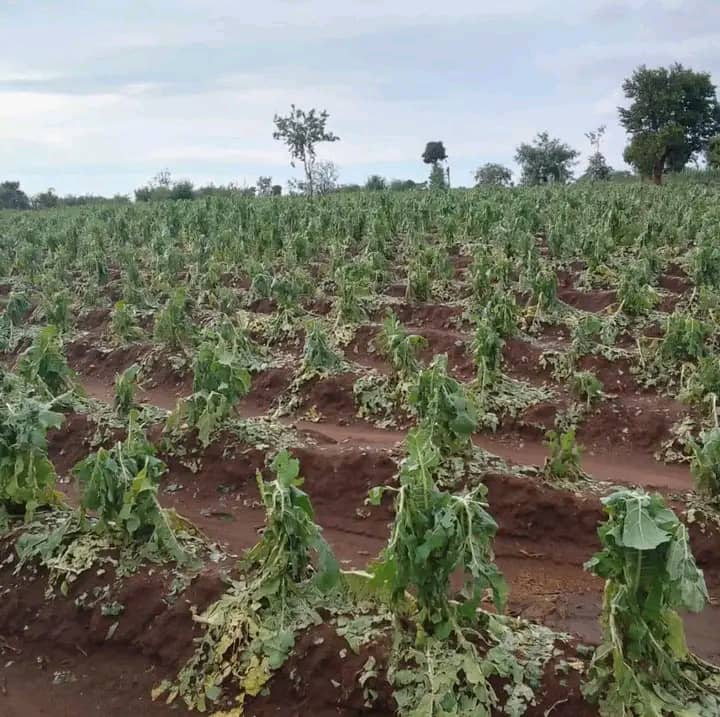By Burnett Munthali
The picturesque rural landscapes of Kasiya Kabudula in Lilongwe, once a testament to the hard work and resilience of Malawian farmers, are now shadowed by devastation. Heavy rains have swept through the region, wreaking havoc on tobacco crops—the lifeblood of many households in this area. This grim reality not only threatens the livelihoods of countless families but also raises broader concerns about the future of agriculture in Malawi.
As the farming season began, hope was palpable among the residents of Kasiya Kabudula. Tobacco, often referred to as Malawi’s “green gold,” promised a bountiful harvest that could cover school fees, medical expenses, and household needs. However, nature had other plans. Torrential rains have destroyed fields, leaving farmers with nothing but soggy remnants of their once-promising crops.
One farmer, visibly shaken by the loss, lamented, “All my efforts for the season have gone to waste. We’ve lost not just our crops but our only source of income. How will we survive?”
Tobacco farming is not just a local livelihood; it’s a significant contributor to Malawi’s economy. The loss of these crops in Lilongwe could have ripple effects, affecting local markets, export earnings, and national revenue.
For subsistence farmers, the loss is even more personal. Many in Kasiya Kabudula are now staring at the grim prospect of food insecurity. Without a harvest, families will struggle to make ends meet, forcing some to abandon farming altogether or resort to other means of survival.
The situation in Kasiya Kabudula underscores the urgent need for climate-resilient agricultural practices in Malawi. While the government and non-governmental organizations have made efforts to introduce sustainable farming methods, the devastating rains highlight gaps in preparedness and response mechanisms.
Farmers are appealing to authorities for immediate support. Emergency relief in the form of food, financial aid, and inputs for the next planting season is critical. Moreover, long-term measures such as improved irrigation systems, climate-resilient seeds, and comprehensive insurance schemes are necessary to shield farmers from future disasters.
The plight of Kasiya Kabudula serves as a wake-up call for the entire nation. As climate change continues to disrupt weather patterns, Malawi must invest in robust strategies to protect its agricultural sector. Collaboration between the government, private sector, and international partners is essential to mitigate the impact of such disasters.
Despite the overwhelming loss, the spirit of Kasiya Kabudula’s farming communities remains unbroken. These are people who have faced adversity before and risen above it. With timely intervention and support, they can rebuild their lives and continue to contribute to Malawi’s agricultural legacy.
As we watch the skies with bated breath, let us also reflect on our collective responsibility. The story of Kasiya Kabudula is not just about heavy rains and destroyed crops—it’s about resilience, solidarity, and the urgent need to adapt to an uncertain future.
“When the rains come too hard, we do not despair. We rebuild, we replant, and we hope.”




